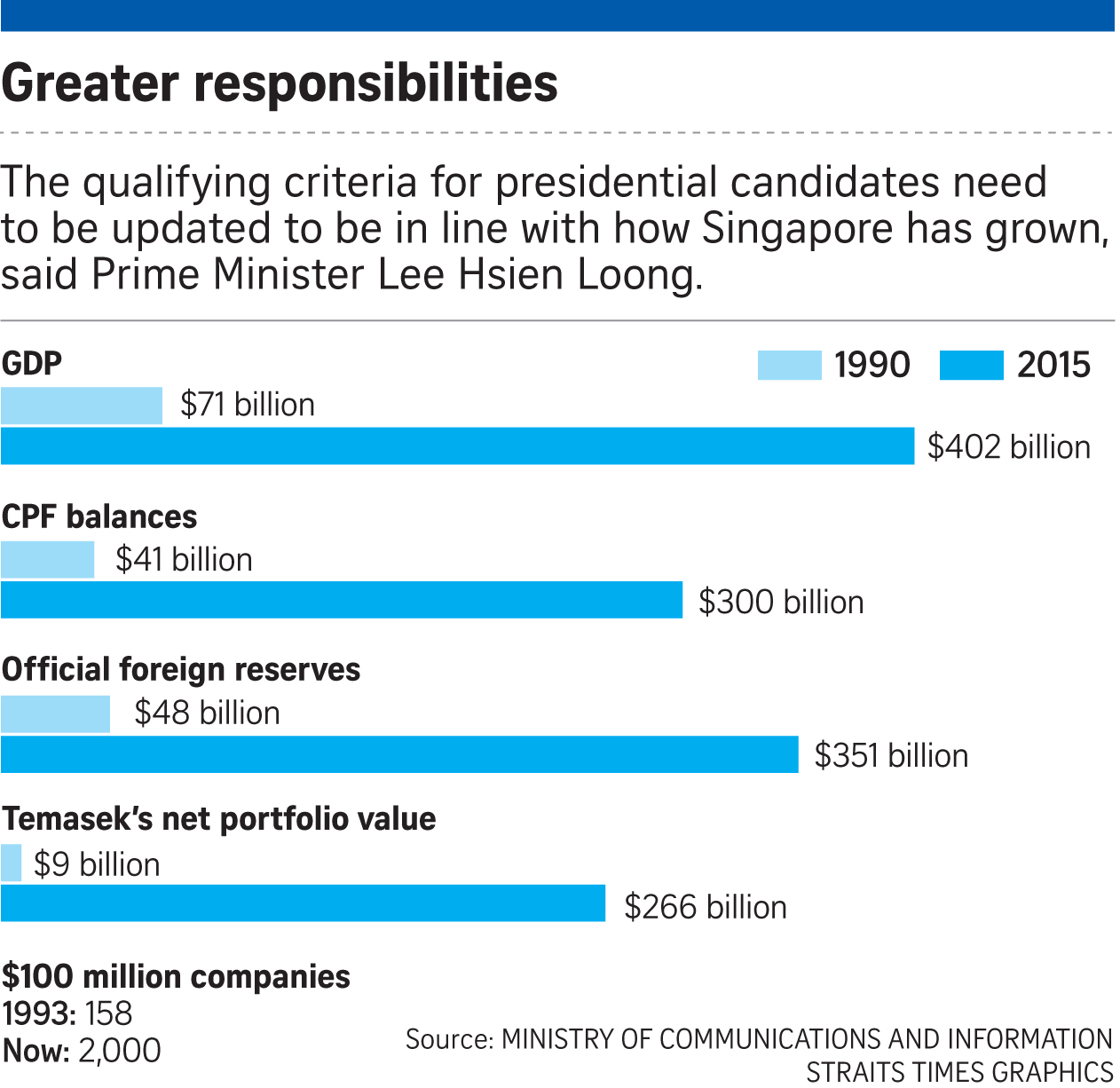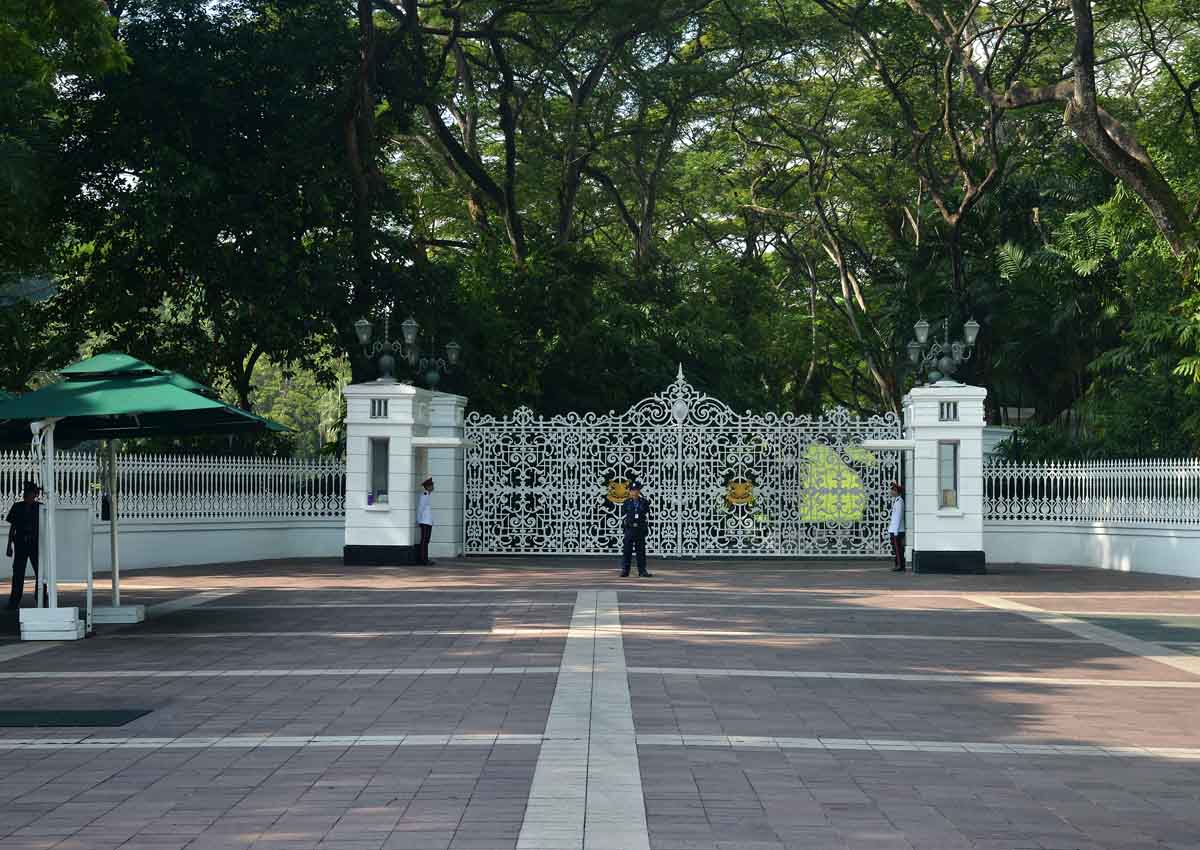What might the changes to the elected presidency mean? Insight looks at issues raised in the wake of the Constitutional Commission’s report on its review of the elected presidency
Bearing in mind the president’s duties as guardian of the nation’s financial reserves – tasks involving complex, highly technical issues – the Constitutional Commission recommended more stringent eligibility criteria. Will this lead to better presidential candidates?
In 1991, the Constitution was amended to allow for an elected president with custodial powers – the so-called “second key” safeguard mechanism – against a government that might wish to draw on and spend past reserves.
Then, private-sector candidates were required to have experience running large, complex companies that had a paid-up capital of $100 million.
But given inflation and today’s vastly different commercial landscape, the 25-year-old requirement is inadequate to ensure that candidates have the fiscal savvy to safeguard the reserves. Today, the total value of Singapore’s reserves is more than $700 billion – $344 billion managed by the Monetary Authority of Singapore, $242 billion managed by Temasek, and well over $100 billion managed by GIC.
In 1993, only 158 – or 0.2 per cent – of companies here fulfilled the $100 million paid-up capital requirement. But as of March this year, the top 0.2 per cent of Singapore-incorporated companies numbered about 600, with the smallest of these having a paid-up capital of about $431 million.
Hence, the commission suggested revising the amount to $500 million in shareholders’ equity, as it is a better indicator of a company’s size and complexity.
It also suggested a performance requirement: The company should have posted a net profit when the candidate was heading it. It must also not go into liquidation or insolvency within three years of the candidate’s departure.
Some observers have lamented, as many did in 1991, that the higher benchmark limits the sort of people who can apply. But, as was the refrain then, the commission said the objective is not to ensure every citizen has the opportunity to stand for president, but to ensure voters are given qualified and suitable candidates to choose from.
The commission noted that while the criteria should not be manipulated so as to artificially increase the size of the pool, more companies would meet the revised thres- hold today than when the old one was imposed.
As far as the president’s custodial role is concerned, the higher benchmark would bring in people more equipped to safeguard the nation’s reserves.
But a higher bar will also make the pool of candidates smaller, when compared with that in 2011.
This means that there would be fewer candidates who not only have the fiscal know-how but also – just as importantly – the temperament for the job.

The latter is needed to fulfil the office’s other role as a unifying symbol for the nation. It is a point that “tend(s) to be overlooked because a great deal of attention has been directed at the president’s custodial powers”, the commission said.
This aspect of the job demands emotional dexterity: The president must be equally comfortable feting high-ranking visiting officials one day, and engaging with the man-in-the-street at a crowded bazaar the next.
Candidates who are at the apex of their careers in commerce, for example, are not guaranteed to be suited for the president’s ceremonial and community duties, which could be a problem, observers note.
“The criteria are overwhelmingly weighted in favour of financial and management nous, while judgment, wisdom and empathy are not given similar weight,” says Singapore Management University law don Eugene Tan, who made submissions to the panel.
The raised bar has prompted concerns by some, like Workers’ Party chief Low Thia Khiang, that voters would be left with candidates drawn from establishment circles – which he says may make it difficult for the president to fulfil his role as a check on the government.
Mr Low’s critics would point him to the first popularly elected president Ong Teng Cheong, a former PAP chairman and deputy prime minister. He clashed with the Government over what information he was entitled to regarding national assets, which made up the country’s reserves. He also had a knack for empathising with people, which saw him referred to as the “people’s president” at the time.
Prime Minister Lee Hsien Loong himself noted in a TV interview last Sunday that “even if I raise the standards, I cannot guarantee that nobody who is going to be difficult will become president”.
“It is not possible because however, wherever you cut off, there will be somebody, even a former minister or a former judge or somebody who may have run a very big company, (who) may have his views, may clash with the government,” he said.
The commission has also suggested that the size and structure of the Council of Presidential Advisers should be strengthened, and it should be consulted on all fiscal matters on the reserves and all key public service appointments.
Political scientist Lam Peng Er of the National University of Singapore’s East Asian Institute cautions against making the institution too complicated.
“In 30 or 40 years, when the present batch of leaders are gone, and the issues of the day are different, can we really have constitutional safeguards to protect everything?” he says. “Someone might ask, ‘Who guards the guardians of the guardian?’ There’s no end to it.”
The commission noted that the Presidential Elections Committee, which ensures aspiring candidates meet the eligibility criteria, must continue to ensure candidates possess “integrity, good character and reputation”.
It also called for greater disclosure on their past to attest to their character and integrity.
While there is no guarantee that a strong resume makes for a good president, better checks on candidates will help make sure they are the best persons for the top office.
rachelay@sph.com.sg

This article was first published on September 11, 2016.
Get a copy of The Straits Times or go to straitstimes.com for more stories.



























































































